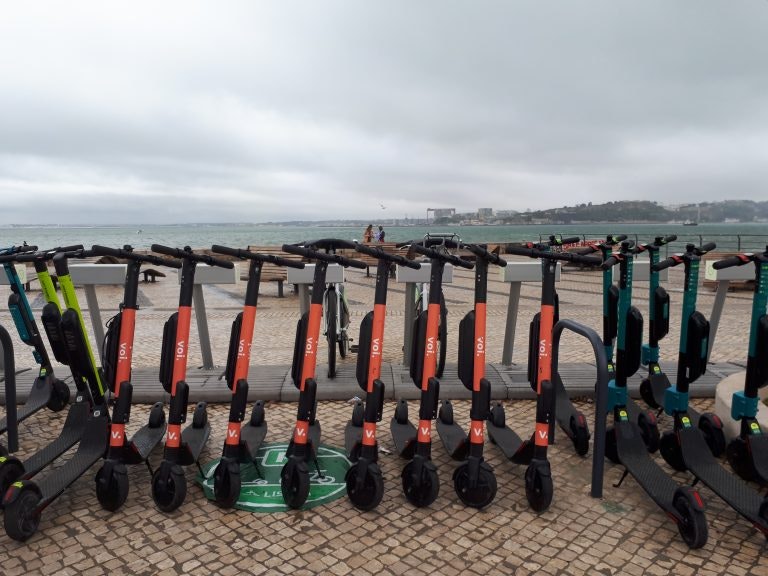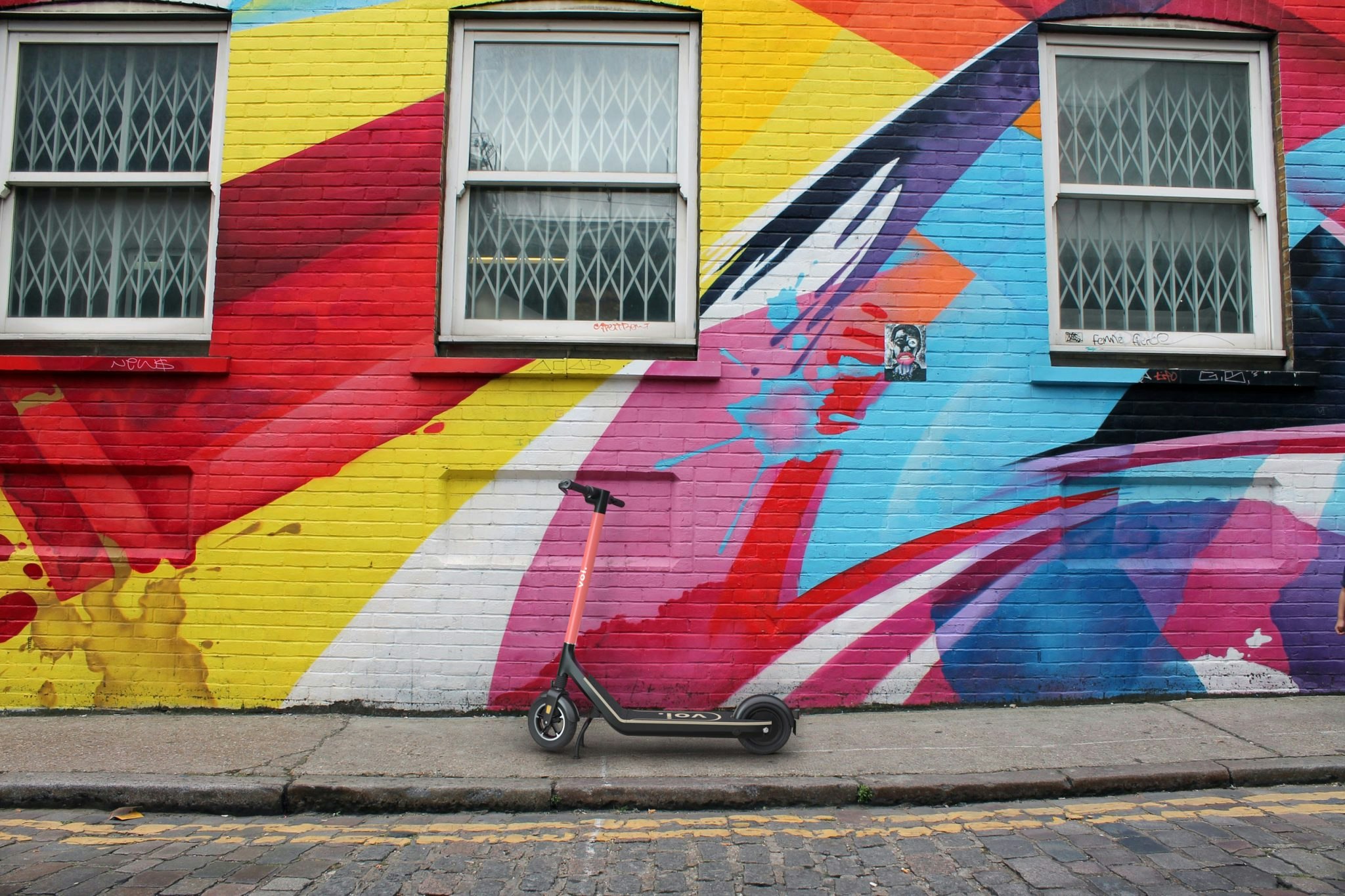There has been an explosion of new mobility options for city-dwellers in recent years. There are electric scooters, shared bike schemes, short-term car hire schemes and ride-hailing apps to name a few. Some argue that the market is becoming absurdly saturated.
But despite this, there is now one more new mobility startups in Europe, a Dutch startup called Cargoroo, which lets out battery-powered e-cargo bikes are about 1/4 the size of a car, with a low-slung box behind the small front wheel. They run on a battery, which can be swapped overnight and needs to be charged once or twice a week.
The company is attempting to capture three niches in the urban mobility landscape which it says are not being filled by the current offering: families with children, small business owners who need to transport small volumes of stock, or anyone hauling a heavy load.
"There are lots of solutions for individual transport, but nothing if you have two to three kids or lots of groceries", says Jaron Borensztajn, the company’s co-founder.
So far, 70% of trips with Cargoroo have transported kids. Normally, these journeys are round-trips lasting around four hours. "People will go somewhere, park, and then head home," says Borensztajn.
The typically longer use-case of Cargoroo cargo-bikes compared to scooters or regular bikes is reflected in the pricing: fees are per hour rather than per minute. Cargo bikes can also be rented for an entire day.
The start-up is still small, with just 20 bikes on the ground in the Netherlands.
However, the company won the European Startup Prize for Mobility in 2019 and, after initial seed investment, the won a subsidy from the EU to launch in seven EU cities (Amsterdam and Arnhem–Nijmegen in the Netherlands, Manchester in the UK, Leuven in Belgium, Kempten in Germany and Dreux in France).
It is a partner in the EU's E-hubs project, which is creating charging spaces in cities to increase the uptake of shared electric mobility solutions.
"If you give people more choice, the total usage of sustainable mobility will increase,’ says Borensztajn. Aside from these pilot cities, Cargoroo is also planning commercial launches in a number of other EU cities.
Challenges
There is no guarantee Cargoroo will replicate their success in Holland elsewhere.
One challenge Cargoroo faces is to educate people on how to use the vehicles. Whilst cargo bikes may be a familiar feature in much of Northern Europe, elsewhere in the continent, the idea of manoeuvring your offspring in a wheel-mounted bucket may be a little daunting.
Reaching a European market will involve a concerted and sustained effort of local engagement — and this costs money.
Rather than simply dropping their vehicles into a city, as scooter companies have largely done, Cargoroo plan to build up their fleet slowly, neighbourhood by neighbourhood, often with public events and ‘trial days’ for locals to test out the idea.
On launching in a given area, the cargo bikes will be deployed at 200m intervals in a grid, so that residents can reliably find a vehicle.
The hefty vehicles are also expensive to produce, costing €5,000 compared to €300 for a dainty micro-scooter. Additionally, they demand greater operational costs compared to existing alternatives.
"That means we need higher initial investments," says Borensztajn. But once they are rolling, the vehicles last much longer, he says. Electric scooters have an average life of just 28 days; the e-cargo bikes last four years before needing refurbishment. They can then be put on the roads again.
Cargoroo’s arrival onto the mobility market is timely.
With two dozen European cities planning to push some, if not all, carbon-chugging personal vehicles out of their city centres in the next decade, urban residents will have to find another way to get around.
Cargo bikes could be the missing link that enables families to jump on board the environmentally-friendly, vehicle-sharing bandwagon.



